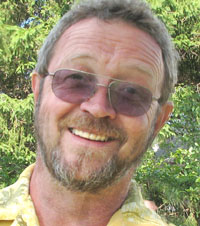I attended an Old Hippie Party one Saturday while visiting my childhood home in rural Pennsylvania.
A dear friend, Annie Duffy, has been throwing this party for ten years to bring all the children of the Peace and Love Generation who grew up together during the 1960s and 1970s back under one roof again. The roof was a rented pavilion three miles outside of town at our childhood swimming hole, Sandy Beach.
This was my first time to attend, and I was eager to see the faces of all those wild and crazy kids I ran with back in the day. It was a glorious event, but perhaps the name should be changed to Old Hippie Survivor Party. The ravages of time have been significant.
Though about 45 people showed up, too many were missing. Where’s Al? Dead. Where’s Mick? Dead. Where’s Speed Buggy, Bullet Head, Critter, Shake and Bake, and Buzzy? All dead. Drugs, alcohol, tobacco, and their related accidents, illnesses, and disease had wiped out more of my childhood friends than were in attendance.
We sat around a table at one point and brainstormed on how many were dead. People called out names and mentioned the causes as I typed it all into my phone for remembrance. The listing tapered to a close at 66. That number is shockingly high because no one in our group had yet reached the age of 70. Our missing friends had all died young, well before their time.
How could so many die in such a rural, peaceful, idyllic setting? Like I said, drugs of many flavors were at the root. Too many had no hope or understanding of how to maintain their living bodies for the long haul. We arrived into that indulgent phase of life during the Vietnam war and the threat of draft. Though peace, love, and music held us together, hopelessness, fatalism, and a lack of education regarding health, diet, and exercise took its mighty toll.
My survival was a bit ironic, and a bit fortunate. As a teenager, though I liked having fun as much as everyone else, I saw this devastation beginning to take shape. Eight close friends were dead by the time I was 17. My father died driving drunk and killed two other people when I was 7 years old. I was raised by my mother who was a transplanted teetotaler Okie and there was never alcohol in our house. Many of my neighborhood friends where the children of alcoholics and unfortunately carried the gene genie of daily exposure.
I was so moved by these losses at the time that I decided to chronicle it by making a home movie that took me 18 months to film. I called it “The End of the World.” My goal was to capture on film as many people as possible so that when they died young and tragically, I’d have something to remember them by. Cinematically, it’s a disastrous failure. It has no plot, no main characters, just conflict and setting. Sentimentally, it’s a peach.
I put the word out that I wanted everyone in town to be in a scene. Then we constructed a long string of simulated earthquakes, explosions, fires, and accidents, with my friends fake falling, screaming, and dying. As filming progressed and word spread, everyone wanted to be in it. I had no problems with casting. One scene has 25 people lying dead in the middle of our Main Street intersection covered in ketchup while traffic backed up in four directions.
In addition to my friends, I filmed scenes with the mayor, the chief of police and his deputy, prominent businessmen, and interspersed throughout is a repeating clip of our town’s Roman Catholic Priest, Father Jocko Lynch, who allowed me to film him shaking his fist in abhorrence while standing in front of the church.
The film ends tragically with everyone dead and the earth spinning out of orbit.
Making that film saved me. While others were out indulging in no-nos, I remained locked away alone in my studio apartment with projectors, splicing tools, record player and cassette recorder, and a 7-jewel Swiss stopwatch.
Drugs and alcohol were not my cup of tea, but peer influence was strong. Luckily I stayed out of the swirl. Also luckily I moved out of town to attend Penn State at the fortunate age of 20, too young to fall into the local bar scene, and old enough not to become intoxicated by the new-found freedom of living alone in a college town. I made several new college friends who had never been out from under the watchful eyes of restrictive parents. Living alone and free to choose, many crashed and burned and dropped out.
I had lived alone since I was 16 because of an abusive stepfather and one too many violent altercations. I entered adulthood after four years of intense tempering and exposure to the consequences of indulgence.
Anyhow, we had a heck of a good time at the party. Everyone was in good spirits, we had lots of hot dogs and hamburgers, and the celebration ended early because we were all too old for late night.
Steve Gibbs is a retired Benicia High School teacher who has written a column for The Herald since 1985.







Leave a Reply